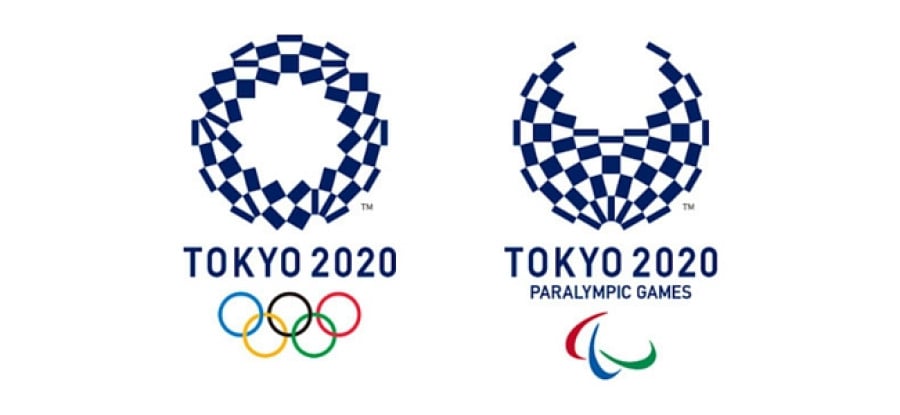How to register an Olympic Logo – The story of Tokyo 2020

Tokyo 2020, the organising committee for the 2020 Olympic and Paralympic Games, is generally seen as a star amongst major event organising committees around the world. It’s seen to be well organised and well supported. Its sponsorship sales have been astronomical,1 and (until very recently!2) it hasn't been clouded by the corruption scandals facing other high profile sports bodies at the moment. However it does have one blot on its copybook: the saga with its logos.
Intellectual property in an Olympic logo
Before going into the facts of this particular scenario, it is worth considering the intellectual property rights that are available to protect logos. Logos are often made up of different elements. For example an Olympic Games logo consists of the Olympic Symbol (the five interlocking rings); the name of the particular Games (here, TOKYO 2020) which may be written in a particular font; and the design element. Different elements of the logo may attract different forms of protection – although there are differences across the globe, the key protections are summarised briefly below.
- Copyright arises automatically on the creation of artistic works and prevents copying of a substantial part of the work for a period equal to 70 years from the death of the author/creator of the work. As a result of Berne Convention,3 recognised by 170 countries, copyright is available in the majority of countries around the world and enforceable widely, regardless of where the author was born or the work created. In some countries, there is however a requirement or
- Registered trade marks provide a monopoly right in the country they have been registered and can, in theory, be renewed infinitely. However a mark has to be registered in respect of the classes of goods and services for which they are to be used and failure to use in respect of the registered class(es) can result in cancellation of a trade mark. The monopoly right allows the trade mark owner to prevent the use of similar or identical marks in relation to the specific goods or services for which it is registered. However, trade marks with accrued fame and repute can be used to prevent the use of similar and identical marks, not only in relation to the goods and services in which they’re registered, but also in respect of other unrelated goods/services.
- Registered design rights are recognised in many countries and may also be used to prevent use of designs, including logos. The duration of protection afforded a registered design is usually limited, so although there can be benefits over a registered trade mark (they’re normally cheaper and don’t have to be registered in relation to specific goods and services), they are not a substitute for trade mark registration.
So, what intellectual property is used to protect an Olympic Games logo…?
Copyright will protect the design element and possibly the font. (Note that copyright in the Olympic Symbol has now expired, but is protected in many countries as a special emblem under the Nairobi Treaty4) The name of the Games (ie CITY + YEAR) is unlikely to benefit from copyright protection as insufficient creative endeavour will have gone into its creation. However, it is likely to be capable of trade mark registration in many countries. In the UK, the London 2012 Games benefited from the first CITY +YEAR trade mark in the UK. The logo in its full form, and its constituent parts are normally registered as trade marks. Variations of the logo may also be registered as trade marks – for example the London 2012 logo came in 4 key colours and a variety of distinctive ‘infill’ versions (such as a Union Flag), each of which was registered. Finally, design rights may also be utilised, particularly for the design element of the logo.
Tokyo 2020’s abandoned “T” and the search for a new logo
To continue reading or watching login or register here
Already a member? Sign in
Get access to all of the expert analysis and commentary at LawInSport including articles, webinars, conference videos and podcast transcripts. Find out more here.
- Tags: Belgium | Berne Convention for the Protection of Literary and Artistic Work | Copyright | Intellectual Property | Japan | Locarno Classification System | London 2012 | Nairobi Treaty | Olympic Games | Paralympic Games | Tokyo 2020 Olympic and Paralympic Games | Trade Mark | United Kingdom (UK) | Vienna Classification System
Related Articles
- How will the 2020 Tokyo Olympic and Paralympic Games change sports law in Japan? - Episode 30
- The funding and employment status of elite athletes – A comparison of the UK, USA and Germany
- The importance of trade marks in football – controlling brand value & avoiding own goals
- Is sharing sports clips on social media an infringement of copyright under UK, European, Australian & US law?
Written by
Alex Kelham
Alex is the Head of Lewis Silkin’s Sport Business Group. Her work focuses on advising entities across the sports sector on a wide range of predominantly commercial and IP issues.
Jackie Bolton
Jackie is a UK and European trade mark attorney at Lewis Silkin. She has years of experience in the world of trade marks and has worked in trade mark attorney practices and law firms.


 Global Summit 2024
Global Summit 2024